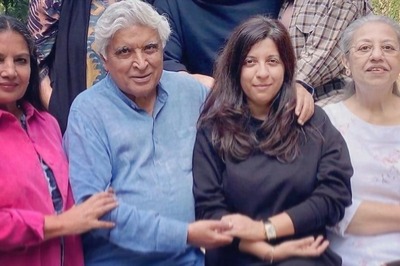
views
Noted as being one of the most influential writers of the 20th century, Eric Arthur Blair, who gained prominence under his pen name George Orwell was known to be an outspoken supporter of democratic socialism and an ardent opposer of totalitarianism.
The English novelist, essayist, journalist and critic, who as a writer produced literary criticism, ditties, fiction, and journalistic work, wrote books that find relevance even today in a neo-postmodern world. The author whose work remains influential even today in popular and political culture has also given rise to the adjective "Orwellian" — describing totalitarian and authoritarian social practices.
Here's looking at five books by Orwell that prove his relevance even today:
Down and Out in Paris and London (1933): The first full-length work by Orwell, published in 1933. It is a memoir in two parts on the theme of poverty in the cities of London and Paris. The memoir follows the author after he gave up his post as a policeman in Burma to become a writer, and is a stark look at the social injustices faced by people.
The Road to Wigan Pier (1937): The first half of this work documents his sociological investigations of the bleak living conditions among the working class in Lancashire and Yorkshire while the second half is a long essay on his middle-class upbringing, and the development of his political conscience, questioning British attitudes towards socialism. The book grapples with the reality of Depression suffering in the north of England.
Homage to Catalonia (1938): The book is a personal account of his experiences and observations fighting for the Republican army during the Spanish Civil War.
Animal Farm (1945): The allegorical novella reflects events leading up to the Russian Revolution of 1917 and then on into the Stalinist era of the Soviet Union and is written from the point of view of farm animals.
Nineteen Eighty-Four (1949): The dystopian novel, set in the imagined future, whose themes centre on the risks of government overreach, totalitarianism and repressive regimentation of all persons and behaviours within society.



















Comments
0 comment